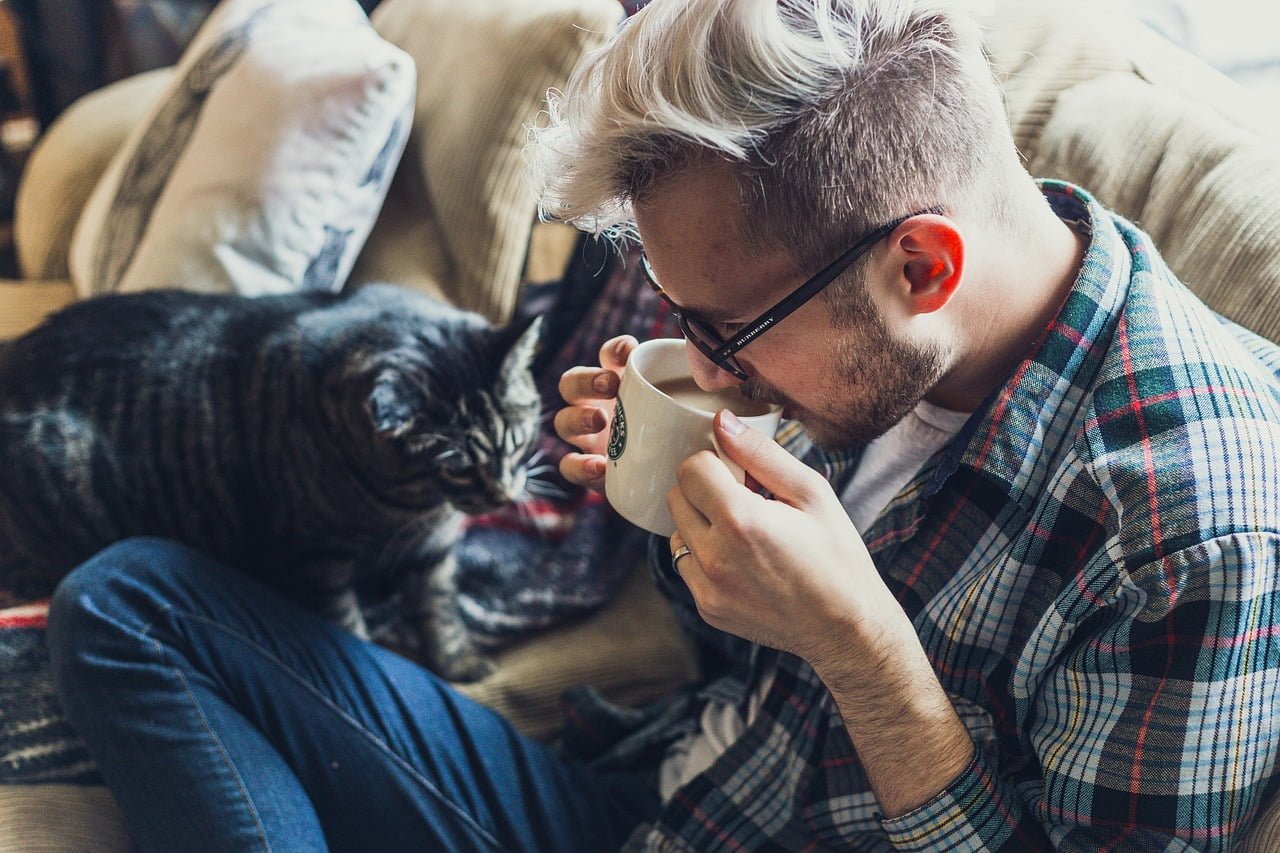
Is your feline friend looking a bit too fluffy lately? You’re not alone! Many cat owners are facing the challenge of dealing with overweight cats.
In this blog, we’ll dive into the world of chubby kitties, exploring why they gain weight, the health risks involved, and, most importantly, how to help your furry companion slim down and stay healthy.
Why Are So Many Cats Overweight?
Let’s face it: cats are masters of laziness.
They sleep for hours on end and often like to lounge on the couch instead of chasing toys. But there’s more to the story of overweight cats than just their love for naps. Several factors contribute to the rising number of overweight cats we see today.
First off, many indoor cats simply don’t get enough exercise. Unlike their outdoor counterparts, who spend their days climbing trees and chasing mice, indoor cats have limited space to roam and explore. This lack of activity can make your cat overweight over time.
Another big culprit is overfeeding. It’s easy to fall into the trap of giving your cat too much food or too many treats. After all, no pet parent can resist those cute, big, pleading eyes. But cats don’t need as many calories as we might think, and those extra nibbles can quickly add up to extra pounds.
Some cat owners also make the mistake of free-feeding their pets. This habit means leaving food out all day for cats to munch on whenever they please. While this might seem convenient, it can lead to overeating and weight gain.
Lastly, as cats age, their metabolism slows down. This slow metabolism means they burn fewer calories and are more prone to gaining weight if their diet and exercise habits don’t change.
Understanding Cat Body Composition
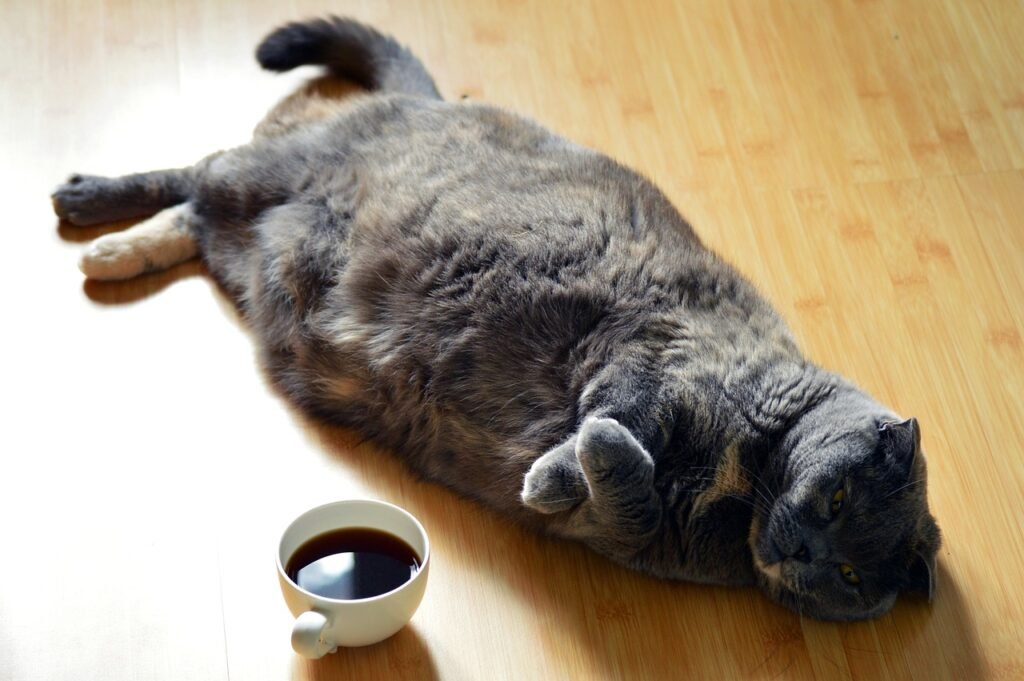
To truly grasp the issue of overweight cats, it’s important to understand feline body composition. Cats, like humans, have different body types. Some cats are naturally lean and lanky, while others are more stocky. This variation can make it tricky to determine if a cat is overweight just by looking at them.
Veterinarians use a body condition score (BCS) system to determine whether a cat’s weight is healthy or not. This system typically ranges from 1 to 9, with 1 being severely underweight and 9 being severely obese. An ideal score is usually around 4 or 5. Understanding this system can help cat owners better assess their pet’s weight status.
The Role of Genetics in Feline Obesity
While diet and exercise play crucial roles in a cat’s weight, genetics can also be a factor. Some cat breeds are more prone to weight gain than others. For example, Maine Coons and Ragdolls are large breeds that can easily become overweight if their diet isn’t carefully managed. On the other hand, breeds like Siamese and Abyssinians tend to be naturally lean.
However, it’s important to note that genetics is not destiny. Even if a cat has a genetic predisposition to weight gain, a proper diet and exercise plan from your end can help to maintain a healthy weight.
The Impact of Neutering on Cat Weight
Most cat owners are surprised when they learn that neutering can contribute to weight gain in cats. After neutering, a cat’s metabolism can slow down by up to 30%. This slow metabolism means they need fewer calories to maintain their weight. Unfortunately, many owners don’t adjust their cat’s diet after neutering, leading to overweight cats.
Additionally, neutered cats often become less active, further contributing to potential weight gain. This situation doesn’t mean you shouldn’t neuter your cat – the benefits far outweigh the risks. It just means you need to be aware of this potential side effect and adjust your cat’s diet and exercise routine accordingly.
The Psychology of Feeding Cats
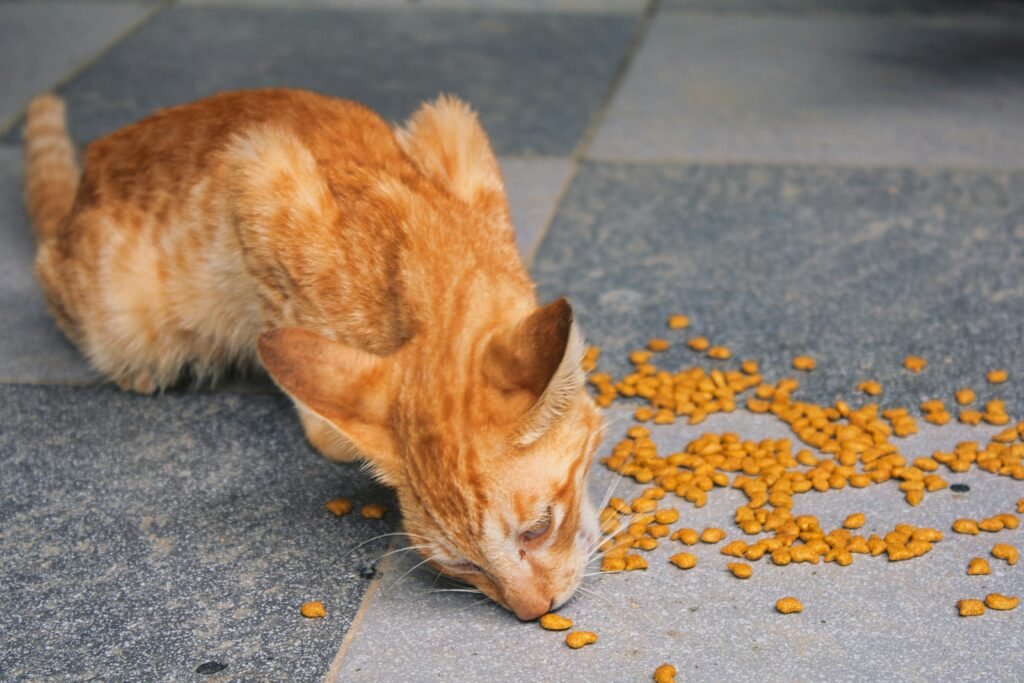
Understanding why we overfeed our cats can be crucial in addressing the problem. Often, food becomes a way for owners to show love to their pets. We might give extra treats as a way of bonding or to alleviate our guilt for leaving them alone during the day.
Moreover, some cats are very good at training their owners to give them food. They might meow incessantly, paw at their owners, or even knock things off shelves to get attention and food. Recognizing these behaviors and learning to resist them is an important step in avoiding raising overweight cats.
The Importance of Proper Nutrition
While we’ve touched on the importance of diet, it’s worth diving deeper into what constitutes proper nutrition for cats. Cats are obligate carnivores, i.e., they require a diet high in animal protein. In the wild, a cat’s natural diet would consist of small prey animals, providing them with protein, fat, and minimal carbohydrates.
Many commercial cat foods, especially dry kibble, are high in carbohydrates and relatively low in protein. This doesn’t align well with a cat’s natural dietary needs and can contribute to weight gain. When choosing cat food, look for options high in protein and low in carbohydrates. Wet food often fits this bill better than dry food.
The Role of Water in Weight Management
Drinking water and hydration play an important role in weight management for cats. Many cats don’t drink enough water, especially if they’re on a dry food diet. Your cat can sometimes mistake dehydration for hunger, leading to overeating. Additionally, proper hydration is essential for overall health and can help with weight loss efforts.
Encouraging water intake can be as simple as providing fresh and clean drinking water in multiple locations around the house. Some cats prefer running water so that a cat water fountain might be a good investment. Adding water to wet food can also increase a cat’s water intake.
The Connection Between Stress and Weight Gain
Just like in humans, stress can contribute to weight gain in cats. Stressed cats may overeat as a coping mechanism. They might also become less active, preferring to hide or sleep rather than play and explore.
Common sources of stress for cats might be new pets or family members, sudden changes in routine, moving to a new home, or even rearranging furniture. Recognizing and addressing sources of stress can be an important part of managing your cat’s weight.
Health Issues Resulting in Overweight Cats
Regular veterinary check-ups are crucial in managing a cat’s weight. Vets can provide personalized advice based on your cat’s specific needs. They can also rule out any health conditions that might be contributing to weight gain.
Some major health issues that can cause weight gain in cats include hypothyroidism, diabetes, and certain types of tumors. Early detection of these health conditions can make the treatment easier and help manage your cat’s weight more effectively.
By understanding these deeper aspects of feline weight management, cat owners can be better equipped to help their overweight cats achieve and maintain a healthy weight.
The Dangers of Overweight Cats
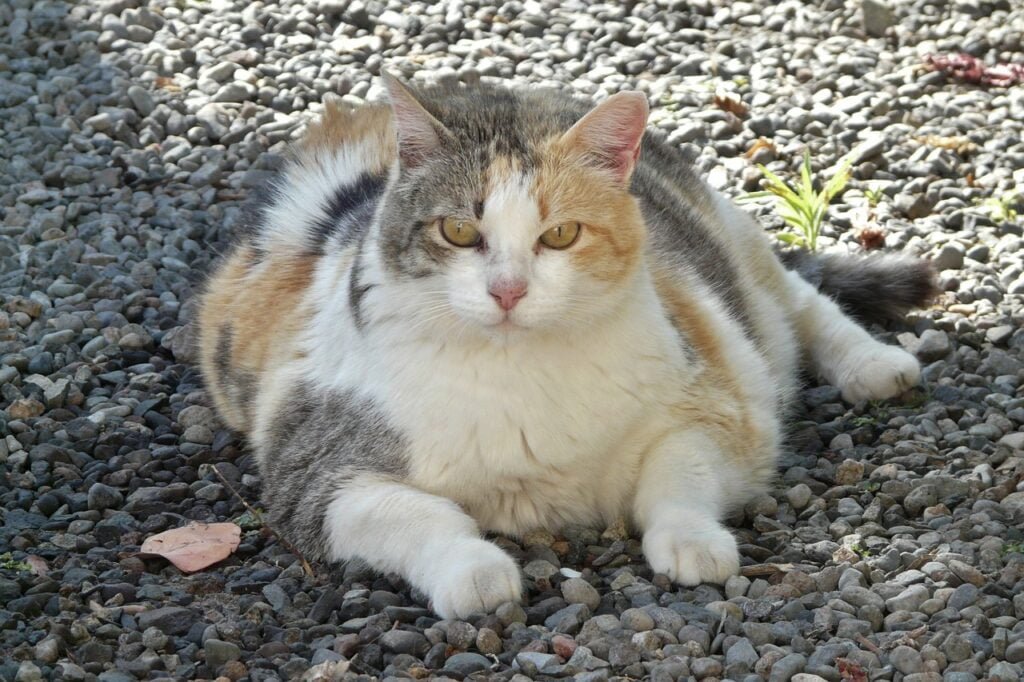
An overweight cat isn’t just less adorable (although we love our chubby kitties too!) – it can also face serious health problems. Being an overweight cat puts a lot of stress on a cat’s body and can lead to various health issues.
- One of the biggest risks for overweight cats is diabetes. Just like in humans, excess weight can cause insulin resistance in cats, leading to diabetes. This condition requires lifelong management and can be quite costly.
- Arthritis is another common problem in overweight cats. The extra weight puts more pressure on your cat’s joints, leading to pain and reduced mobility. This restriction can make it hard for them to jump, climb, or even use the litter box comfortably.
- Heart disease is also more common in overweight cats. The extra fat in the body puts strain on the heart and makes the heart work harder to pump blood throughout the body. This health condition can lead to heart failure over time.
- Overweight cats are also at higher risk for certain types of cancer, respiratory problems, and liver disease. They may have trouble grooming themselves properly, leading to skin problems and matted fur.
In short, keeping your cat at a healthy weight isn’t just about looks – it’s crucial for their overall health and quality of life.
How to Help Your Overweight Cats to Slim Down
If you’ve realized your cat is overweight, don’t panic! With some patience and effort, you can help your cuddly cat friend get back to a healthy weight. Here are some steps you can take:
- Talk to Your Vet: Before starting any weight loss plan, it’s important to consult with your veterinarian so that they can rule out any undiagnosed health issues related to weight gain and help you find a safe and effective weight loss strategy for your cat.
- Measure Food Portions: Instead of free-feeding or eyeballing portions, start measuring your cat’s food. Your vet can help you determine the right amount based on your cat’s ideal weight and activity level.
- Choose the Right Food: Look for high-quality cat food that’s appropriate for your cat’s age and health status. Some foods are specifically formulated for weight loss in cats.
- Cut Back on Treats: Treats are not more than 10% of your kitty’s daily calorie intake. Try replacing food treats with playtime or cuddles as rewards.
- Encourage Exercise: Increase your cat’s activity level by introducing new toys, setting up climbing structures, or even teaching them to walk on a leash.
- Make Mealtime Fun: Use puzzle feeders or hide small portions of food around the house to make your cat work for their meals.
- Be Patient: Just like with humans, healthy weight loss in cats takes time. Aim for a loss of about 1-2% of body weight per week.
The Importance of Slow Weight Loss for Overweight Cats
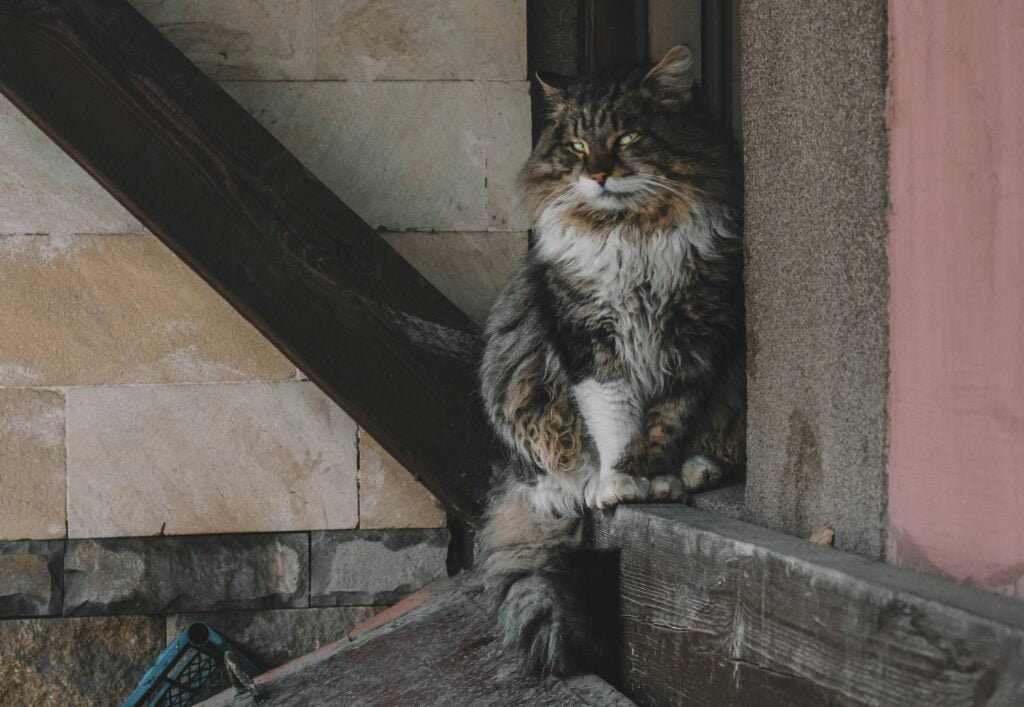
When it comes to helping an overweight cat slim down, slow and steady wins the race, rapid weight loss can be fatal for your cat, potentially leading to a serious liver condition called hepatic lipidosis.
Instead, aim for gradual weight loss over several months. This slow weight loss gives your cat’s body time to adjust and helps ensure the weight stays off long-term. It also makes the process less stressful for your cat (and for you!).
Remember, every cat is different. Some may lose weight quickly, while others might take longer. The key is to be consistent and patient.
Keeping Your Cat Active and Entertained
- Exercise and physical activity are an important part of any weight loss plan, but getting your lazy cat to exercise can be a challenge. Here are some fun ways to keep your overweight cat active:
- Interactive Toys: Invest in toys that encourage your cat to chase, pounce, and play. Wand toys, laser pointers, and motorized mice can all be great options.
- Climbing Structures: Cats love climbing up and perching up high. A cat tree or wall-mounted shelves can provide exercise and entertainment.
- Food Puzzles: These toys make your cat work for their food, providing mental stimulation and physical activity.
- Play Sessions: Set aside time each day to play with your cat. Even short 5-10 minute sessions can make a big difference.
- Outdoor Time: If it’s safe in your area, consider letting your cat explore outdoors in a secured area or on a leash.
Remember, every bit of activity helps. Even if your cat only plays for a few minutes at a time, it’s better than no exercise at all.
The Role of Diet in Cat Weight Loss
While exercise is important, diet plays an even bigger role in helping overweight cats slim down. Here are some dietary tips to keep in mind:
- Protein is Key: Cats are carnivores by nature, So they need a diet high in animal protein. Look for cat foods where meat is the first ingredient.
- Watch the Carbs: Unlike humans, cats don’t need a lot of carbohydrates in their diet. Too many carbohydrates can contribute to your cat’s weight gain.
- Consider Wet Food: Wet food typically has fewer calories and more moisture than dry food. Wet food can make your cat feel full while consuming fewer calories.
- Avoid “Light” Foods: Some “light” or “diet” cat foods are high in carbs and low in protein. Always check the ingredient list and nutritional information.
- Be Consistent: Stick to regular feeding times and avoid free-feeding.
Remember, any changes to your cat’s diet should be done gradually to avoid digestive upset.
Common Challenges in Cat Weight Loss
Helping overweight cats lose weight isn’t always easy. Here are some common challenges you might face and how to overcome them:
- Begging: Your cat might beg for food when you first reduce their portions. Stay strong and resist those pleading eyes! Distract them with play or attention instead.
- Slow Progress: Weight loss in cats can be slow. Don’t get discouraged if you don’t see immediate results. Keep at it and celebrate small victories.
- Multiple Cat Households: If you are a parent of more than one cat, it can be tricky to manage different diets. You might need to feed cats separately or use microchip-activated feeders.
- Stress: Some cats may become stressed when their routine changes. Introduce changes slowly and provide plenty of affection and playtime.
- Health Issues: Sometimes, underlying health problems can make weight loss difficult. Regular check-ups with your vet are important.
Remember, every cat is unique. What works for one might not work for another. You should be patient and open to adjusting your approach to feeding as needed.
Preventing Weight Gain in Cats
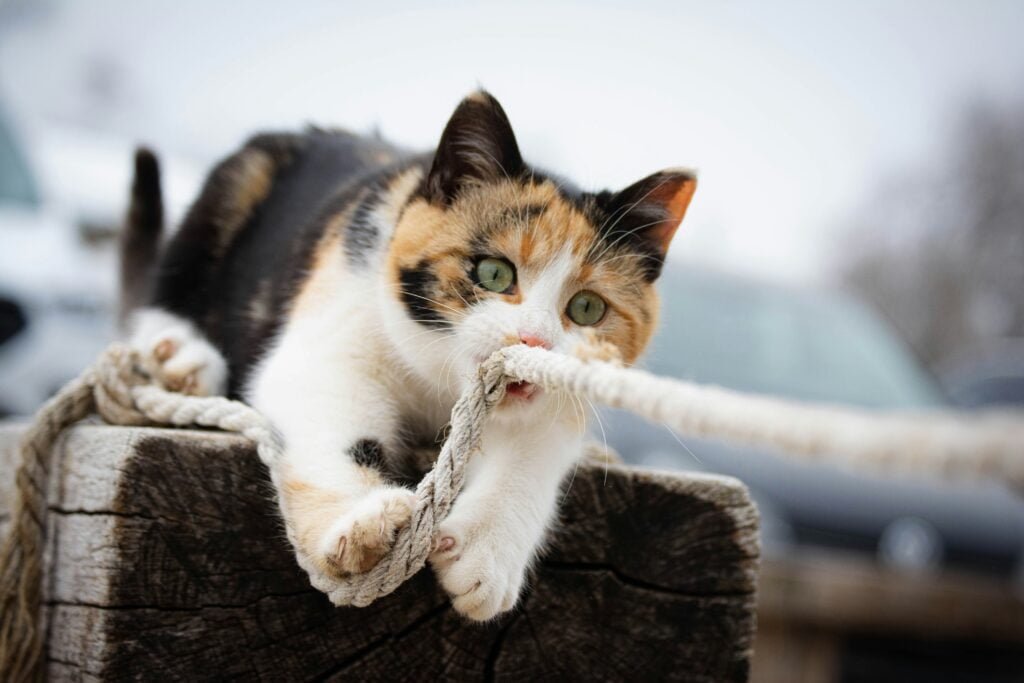
Once the overweight cats have reached a healthy weight, the next challenge is keeping the pounds off. Here are some tips for maintaining a healthy weight in cats:
- Regular Weigh-Ins: Keep track of your cat’s weight with regular weigh-ins at home or the vet’s office.
- Adjust Food as Needed: As your cat ages or becomes less active, you may need to adjust the cat’s food intake to prevent weight gain.
- Keep Up the Activity: Continue to encourage play and exercise, even after your cat reaches a healthy weight.
- Watch the Treats: It’s easy to overdo it on treats. Remember, they should make up no more than 10% of your cat’s daily calorie intake.
- Regular Vet Check-ups: Regular visits and check-ups with the veterinarian can help catch any weight gain early.
Staying vigilant and maintaining good habits will help you keep your cat at a healthy weight for life.
The Joy of a Healthy Cat
Helping overweight cats slim down takes consistent time, investment, and effort, but the rewards for you and your cat are worth it. A cat at a healthy weight is more likely to be active, playful, and affectionate. They’re also at lower risk for many health problems, which means more happy years with your feline friend.
Plus, there’s nothing quite like seeing your cat rediscover their playful side as they shed those extra pounds. From zooming around the house to leaping after toys, a healthy cat is a joy to watch.
Remember, your cat relies on you to make healthy choices for them.
By managing their diet, encouraging exercise, and following the advice of your vet, you can help your overweight cat become the healthiest, happiest version of themselves.
Here’s to happy, healthy cats everywhere!

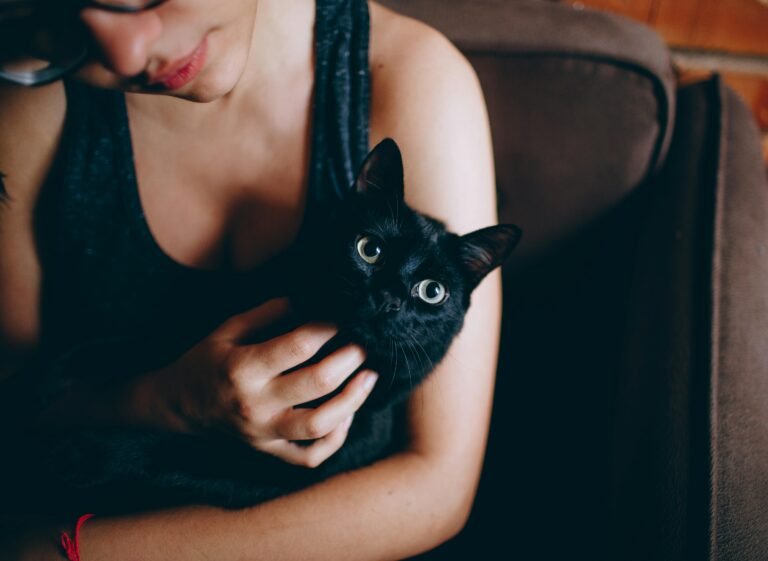
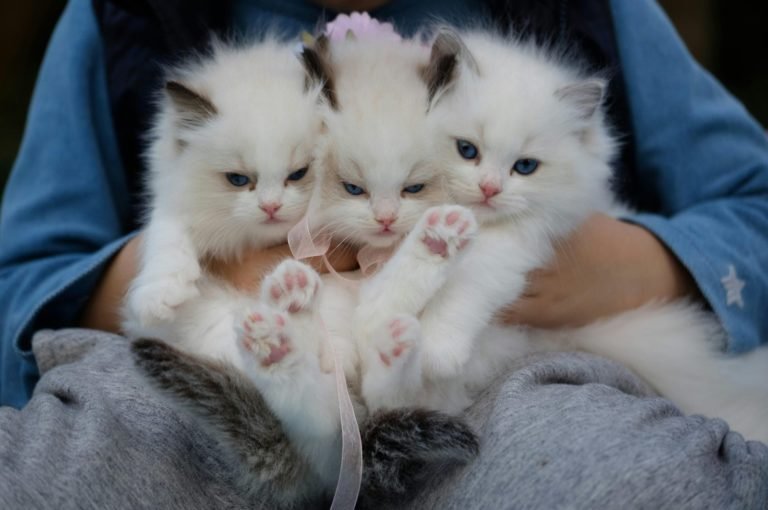
Hi crazycatlife.org administrator, You always provide useful information.